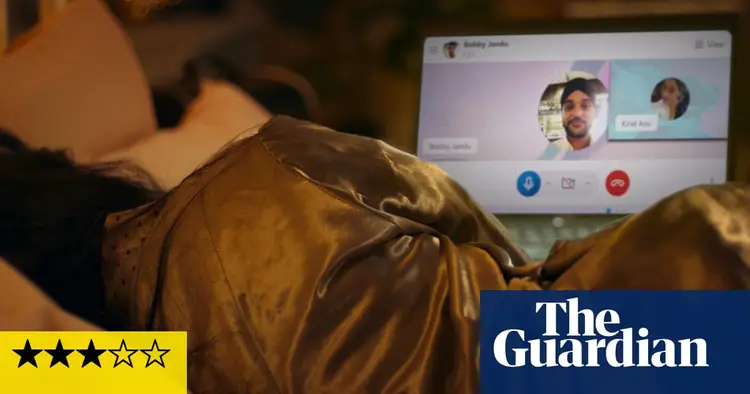Sweet Bobby: My Catfish Nightmare review – flawed Netflix documentary still shocks

In 2009, when Kirat Assi got a friend request on Facebook from a guy named Bobby Jandu, she didn’t think twice about it. After all, it was 2009, a time when everyone was trying to grow their social media circles. Bobby came from a prominent family within the Kenyan Punjabi Sikh community, and he and Kirat had quite a few mutual friends. Additionally, Bobby’s younger brother, JJ, was in a relationship with Kirat’s cousin, Simran. Both Kirat and Bobby were in stable, long-term relationships and frequently shared updates about their lives online. Although they had never met face-to-face—Bobby was a cardiology assistant who traveled between the UK and Kenya, while Kirat worked in marketing and lived in London—they began to build a friendship through their online interactions.
Over nearly ten years, a friendship evolved into an online romance, leading to an engagement and ultimately becoming a tangled web of broken promises that dominated Kirat’s 30s. This saga was part of an intricate catfishing operation, vividly portrayed in the Netflix documentary *Sweet Bobby: My Catfish Nightmare*. Co-produced with Tortoise Media and inspired by its popular podcast of the same name, the film primarily features Kirat’s personal narrative, presented in a mostly chronological order. She serves as a clear and remarkably down-to-earth storyteller, describing in the present tense how her connection with “Bobby” deepened, along with her relationships with his friends and family, through platforms like Facebook Messenger, WhatsApp, phone calls, and Skype, all while Bobby claimed to be recovering from a shooting and stroke in New York.
The narrative is undeniably wild, and the plot is so detailed and convoluted that I don’t want to give anything away for those who, like me, haven't listened to the popular podcast it’s adapted from. However, I can say that I was completely taken aback. Just listening to Kirat share her experience is compelling enough. The shocking elements manage to break through the overly bright lighting and somewhat cheesy reenactments typical of Netflix productions. In some of the stronger moments, director Lyttanya Shannon (known for "Subnormal: A British Scandal") enhances Kirat’s storytelling with a series of repeated screenshots from Facebook that show their profiles and messages, as well as re-creations of Skype conversations and digital interactions. (A note mentions that some online personas have been played by actors to protect the privacy of those involved.) Additionally, interviews with a few of Kirat’s family members and friends add valuable background, shedding light on the familial expectations she encountered—being single in her 30s and eager to have a family made the thought of starting anew without Bobby feel shameful—and how red flags, like Bobby’s assertion that he was in witness protection, were overlooked.
For the sake of intrigue, brevity, or privacy, some important details seem to have been left out. For instance, the relationship between the UK and Kenyan Punjabi Sikh communities, as well as how well Kirat was familiar with those connected to Bobby's family (the term "familiar" is used loosely here, as it's often unclear whether their interactions took place in real life, online, or a mix of both). Shannon draws on extensive data, conversations, and photos collected by Kirat to paint a vivid picture of the surreal situation Kirat found herself in after years of close online communication with Bobby. He even asked her to keep their Skype call open overnight while he slept, yet he wouldn’t meet her in person. However, there’s a lingering feeling of incompleteness — whether it's due to the natural doubt that comes from hearing a story about a scam or a lack of context — as the narrative unfolds.
Fortunately, Sweet Bobby doesn't stretch out over several episodes, but at 82 minutes, it stands out as a true-crime documentary that could have benefited from additional time. The big twist comes quickly (without giving away who the scammer is), and the resolution feels rushed. The film concludes with a note about a civil case that Kirat brought against the impostor, which was settled out of court in 2022. Sweet Bobby effectively delivers shock value—I found myself screaming at my laptop—largely due to the truly outrageous real-life events it covers. Shannon’s method of storytelling enhances the experience rather than detracting from it, right up until the moment the scammer’s luck runs out. However, the lack of speculation on why this particular scam occurred, why this victim was targeted, and how the scheme continued for so long is quite noticeable. This absence might be due to legal concerns, a wish to maintain privacy, or simply because there aren’t clear answers.
Rather than providing a clear resolution, the film wraps up with what seems like a lukewarm plea for legal changes to address issues related to catfishing and online deceit. It also shares common sentiments about starting anew after experiencing deep emotional manipulation and trauma. In the end, Sweet Bobby raises more questions than it resolves; unfortunately, with many catfishing incidents, there often aren't any answers at all.
"Sweet Bobby: My Catfish Nightmare" is now streaming on Netflix.



















































